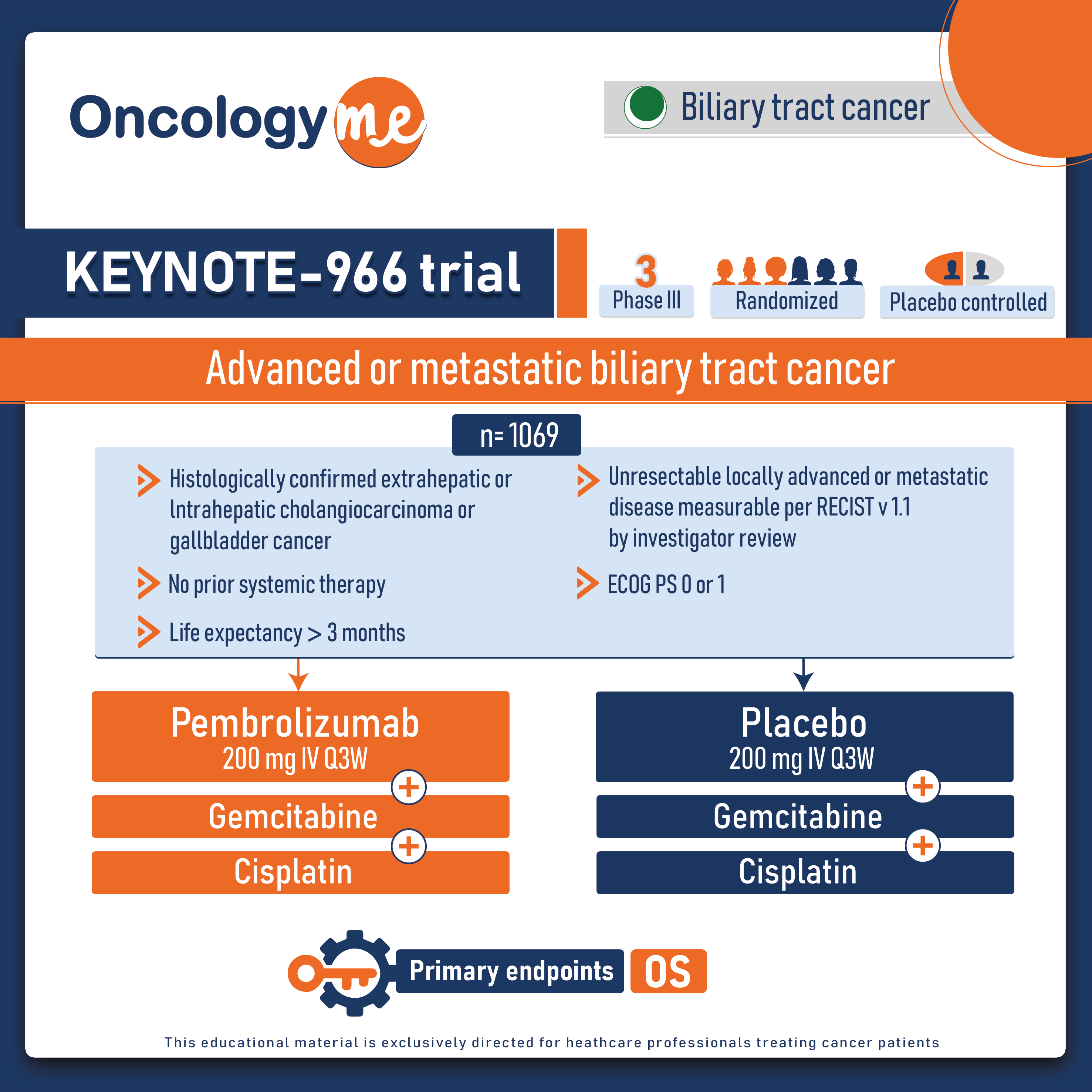In the randomised, double-blind, placebo-controlled, phase III KEYNOTE-966 trial, The addition of pembrolizumab to chemotherapy in the first-line setting improved overall survival in patients with advanced or metastatic biliary tract cancer.
In this multicentre trial conducted at 175 medical centres globally. 1069 eligible participants with previously untreated, unresectable, locally advanced or metastatic biliary tract cancer and measurable disease were randomly assigned (1:1) to pembrolizumab 200 mg or placebo, both administered IV every 3 weeks (maximum 35 cycles), in combination with gemcitabine (1000 mg/m2 IV on D1 and 8 every 3 weeks with no maximum duration) and cisplatin (25 mg/m2 IV on days 1 and 8 every 3 weeks; maximum 8 cycles). The primary endpoint was overall survival was evaluated in the intention-to-treat population. The secondary endpoint of safety was evaluated in the as-treated population.
In the Final analysis after median follow-up of 25·6 months, Median overall survival was 12·7 months in the pembrolizumab group versus 10·9 months in the placebo group (hazard ratio 0·83; one-sided p=0·0034 [significance threshold, p=0·0200]). The 12-month overall survival rate was 52% vs 44%, and the 24-month survival rate was 25% vs 18%, respectively.
In the group of patients who received pembrolizumab, 79% experienced adverse events of grade 3 to 4, compared to 75% in the placebo group. Additionally, 70% of patients in the pembrolizumab group and 69% in the placebo group had treatment-related adverse events with a maximum grade of 3 to 4. Among the participants, 3% in the pembrolizumab group and 9% in the placebo group died as a result of adverse events.
Despite only a modest increase in median overall survival (an extra two months of survival), this improvement was statistically significant and had a meaningful impact on overall survival when compared to the use of gemcitabine and cisplatin. The results of KEYNOTE 966 reaffirm the importance of immunotherapy in treating metastatic biliary tract cancer, which is consistent with the findings of the TOPAZ-1 trial involving durvalumab. This validates the combination of immunotherapy and chemotherapy as a viable first-line treatment option for advanced biliary tract cancer.

.png)